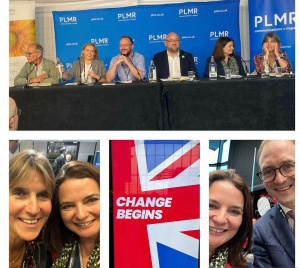
by Nutrilicious | Jul 24, 2025 | Retail, Hot Topics in nutrition, Thoughts, The Nation’s Health, Catering/Out of Home, Communications, Impactful health initiatives
At Nutrilicious, we believe that good nutrition should be accessible to everyone – especially during times of increased financial pressure. The summer holidays, while full of potential for family connection and rest, can be an incredibly stressful period for many households across the UK, particularly when it comes to putting food on the table.
For families already navigating tight budgets, the absence of free school meals and the need for more at-home meals and snacks significantly heightens food costs – and with it, food insecurity.
That’s why we’re proud to support the relaunch of the Iceland Food Club, a vital initiative from Iceland Foods in partnership with not-for-profit lender Fair for You, which provides interest-free loans of up to £75 to help families manage food spending over the summer break.
As part of our commitment to improving the nation’s nutrition, our sister company, MyNutriWeb, contributed nutrition expertise to this project – ensuring the solution is not only affordable but also nutritionally sound.
The Need Is Clear – and Urgent.
Recent research by Iceland Foods reveals the scale of the issue:
- 85% of parents report increased food bills over the summer
- This equates to a £553 million weekly increase in food spending across UK households
- The rise is driven by the need for more at-home food (73%) and the cost of extra snacks and drinks (68%)
With this in mind, the Iceland Food Club aims to provide practical and immediate relief.
What Is the Iceland Food Club?
Eligible families can access an interest-free loan of up to £75 loaded onto a pre-paid card for use in Iceland stores or The Food Warehouse. Repayable in £10 weekly installments, this initiative enables families to manage food costs without turning to high-interest options or sacrificing essentials.
Importantly, returning customers who’ve repaid their loan can top up to £100 during school holidays, helping ensure consistent access to nutritious meals.
“The summer holidays should be a time for families to relax and make memories, not worry about how they’re going to afford their next food shop… When we hear that nearly a quarter of parents are skipping meals so their children can eat, we know we have to step in.”
— Richard Walker, Executive Chairman, Iceland Foods
“The summer break is always one of the most financially stressful times of the year. With the rising cost of living, we’re expecting this to be our busiest period to date.”
— Simon Dukes, CEO, Fair for You
Our Role: Supporting Nutrition on a Budget
At Nutrilicious, we know that affordability should never mean compromising on nutrition. That’s why our expert dietetic team at MyNutriWeb proudly supported the creation of a budget-friendly shopping basket. Designed to stretch the £75 loan for maximum nutritional value, the shopping basket aligns with the UK Eatwell Guide and supports healthy, balanced meals.
This evidence-based basket is tailored for a family of two adults and two children under five, offering:
- 126 balanced portions including 5 breakfasts, 4 lunches, 5 dinners, and 7 snacks
- Recipes that are easy to prepare, affordable, and child-friendly (like banana pancakes, chilli sin carne, and chickpea wraps)
This is more than a collection of meals – it’s a tool for empowering families to shop and cook with confidence, even under financial stress.
“Working with Iceland Food Club to create this Eat Well-aligned basket is so important – it gives parents the means and confidence to buy fresh fruit, vegetables, and essentials available in Iceland supermarkets.”
— Tanya Haffner, CEO and Founder, MyNutriWeb
Why This Matters to Nutrilicious
We’re proud to be part of this initiative because it reflects everything Nutrilicious stands for – practical, impactful solutions that bridge the gap between food insecurity and good nutrition. The impact of food insecurity goes far beyond hunger; it affects mental health, children’s development, and family wellbeing.
How You Can Help
As part of our wider community of health professionals, communicators, and organisations, we encourage you to:
Small steps like sharing this initiative can make a real difference for families this summer.

by Nutrilicious | Sep 25, 2024 | Hot Topics in nutrition, Thoughts, Education, Communications, Event Reports
Food is on the agenda at a number of events at this year’s labour party conference. Here is one of them.
We took part in an event hosted by PLMR in association with the The Vegan Society – Let Food Be Thy Medicine. Tanya Haffner, our CEO and founder, felt honoured to share the stage with Anna Taylor, Executive Director, The Food Foundation, Claire Ogley, Head of Campaigns, Policy and Research, The Vegan Society, Dr Simon Opher, MP, Simon Darby, Head of Public Affairs, PLMR and Jim Bligh, Director of Corporate Affairs and Packaging, Food and Drink Federation.

So why should and how can the government take advantage of the opportunity presented by diet change to deliver a preventative health revolution? Here are some of the highlights:
Why address the issue of diet change?
- Health: Our nation is suffering and dying from preventable diseases where unhealthy diets post a greater risk to morbidity (years living with disability) and mortality than unsafe sex, alcohol, drug and tobacco use combined. The least deprived are the most disadvantaged.
- Planet: At the same time the way we are eating is contributing to climate and ecological breakdown. Food is a major contributor and it is hardly recognised. It contributes to 1/3 of GHG emissions and is damaging all other planetary boundaries. The very systems we are using to nourish us are being damaged by our food system and as a consequence so too is our food security.
- Economics: we have a sick workforce. 2.8 million people are economically inactive because of long term sickness: it’s not sustainable. Recommendations by Henry Dimbleby in the National Food Strategy proposed 2021 focused on 4 dietary shifts towards a more plant based diet ( 30% increase in Fruit and Veg, 50% increase in fibre, 25% reduction in HFSS foods, 30% reduction in meat). When modelled against the Global Burden of Disease data if achieved these would see a 10% reduction in deaths and Years Living with Disability related to dietary risk factors. Yet, successive governments have overlooked the transformative potential of promoting a shift towards healthier plant-based diets in favour of encouraging “personal responsibility” when it comes to diet.
What has the Vegan Society’s recent research shown about the scale of the possible opportunity by plant-based diets?
- The vegan society’s recent research in partnership with the Office for Health Economics has for the first time put a figure on this opportunity cost and estimated that for every million people who take up a plant-based diet in England, this could unlock savings of £121 million for spending in our NHS from reduced spending on preventable diseases such as diabetes and cardiovascular disease. The scale of the opportunity is enormous. Link to the research is here
But are the benefits of healthy diets better understood than previously by health professionals?
- Treatment focused care is excellent. But there are lost opportunities for identifying early development of disease and modifiable risk factors such as diet which could unburden the NHS disease care system.
- Dietitians and nutritionists – plant-based sustainable diets knowledge and application is poor – training has only recently been added to pre-registration training. Yet, post registration dietitians are being called upon to help deliver on net zero targets are on catch up with knowledge confidence and application. MyNutriWeb training and tools supported by the British Dietetic Association and Association for Nutrition are helping to plug this gap. But dietitians and nutritionists often lack funding and time for training.
- Doctors, nurses and other health professionals receive little training – doctors as little as 1 hr in medical schools and lack knowledge confidence and useful trusted tools to support recommend and sign post in first line treatment. A huge opportunity to catalyse change is being lost.
- A joined up strategy to create a nourished healthcare culture that can help unburden the disease care system is needed which can include:
- More social prescribing.
- More dietitians.
- An NHS prescribed personalised prevention opportunities linked into the NHS app using digital tech may help to revolutionise this kind of preventative care.
- Plant-based by default strategies and campaigns such as those in New York City hospitals now being piloted in the UK can also contribute. A plant-based by default menu in healthcare is now being called upon by leading health professionals and organisations which outs plants first but doesn’t take away choice.
- Nutrition societies and health professionals are working with and being influenced by the food industry – but higher standards are needed to align with healthy and sustainable diets and to avoid green and health washing seen in recent years.
What has industry been doing to drive health improvements and how can they further work with government?
- Industry has focused and invested heavily in product reformulation and better labelling and will continue to do so.
- A number of players are undertaking public reporting of healthy and unhealthy sales.
- But industry needs more policy levers to create a level playing field for further change.
What policy changes will be needed by government, the health services, industry and individuals?
Many of the calls to action in the Food Foundations Election 24 Nourishing the Nation Manifesto were highlighted
- Making healthy and sustainable food affordable
- Stopping the junk food escalation
- Investing in children diets
- Making it easier to eat sustainably
- Creating a food bill for England
- Improving transparency by introducing mandatory public reporting by the food business
- Investing in and supporting innovation and R&D across the food and agriculture sector
Improving transparency by introducing mandatory public reporting of advertising was also highlighted when a 1/3 of advertising spend on food and drink goes towards confectionary, snacks, desserts and soft drinks compared to just 1% on fruit and vegetables.
Why are policy makers reluctant to talk about diet, especially plant-based diets?
- Subsidies that facilitate the production of cheap meat are not helping
- Farmers are trapped in a system that drives this and need more support to deliver on food provision centered around horticulture
- People need to be reassured and supported to transition and learn how to afford, access and go plant based
Embracing policy and funding action on diet change including the support for the NHS to be a champion of health, especially towards plant-based diets, is crucial for improving the nation’s health, protecting the planet, and strengthening the economy. What are your thoughts on the role of plant-based diets in creating a healthier future? Let us know in the comments below!



